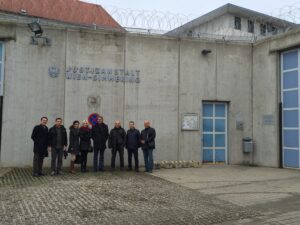
Technical Assistance for Implementation of Civil Society Dialogue and Civil Society Support Programmes (TR2015/DG/01/A5-01/001)
The overall aim of the project is to increase bilateral exchanges and cooperation between CSOs in Turkey and the EU at local, regional and national levels, to promote awareness raising initiatives on importance and benefits of membership of Turkey to the EU within Turkey and EU and on

Ministry of Development Training Programme
Organisations need technical assistance with funds and areas like good management practices; monitoring reports; training programmes on monitoring and evaluation; objectives and indicators, etc. Therefore, the project aimed to provide technical assistance to the Ministry in the field of fund management to the Standing Committee for Economic and

Enhancement of Institutional and Administrative Capacity of Directorate of Transport, Maritime Affairs and Communications Research Centre
The project aims to enhance the institutional and administrative capacity of the Directorate of Transport, Maritime Affairs and Communications Research Centre (DoTMC Research Centre) by promoting research development and innovation in the transport sector. This project ensures the continuous supply of quality project proposals for the regular, timely

Technical Assistance for Improvement of Enforcement Services in Prisons (DEPAR)
There was a general recognition that standards and conditions in Turkish prisons needed to be improved and brought into line with international norms, particularly those operating in the EU in the context of closer EU-Turkey integration.

Training for the Institutional Capacity Building on Climate Change Adaptation
The overall objective of the project is to improve climate change adaptation knowledge and the capacity of the Staff of Turkish institutions (members of CBCCAM (Climate Change and Air Management Coordination Board) for implementation of adaptation policies and projects.

Technical Assistance for Promoting Social Inclusion in Densely Roma Populated Areas
It’s an obvious fact that there is a need to increase social inclusion in heavily populated areas, particularly in Rome, mainly by facilitating their entrance into the formal labour market. Within this context, the project aimed to support Rome’s population by improving the quality of education delivery, vocational

